Hi from Rome,
Do we live in a dystopia?
Europe’s mountains are snowless. But Italy’s Prime Minister Giorgia Meloni is waging a battle against climate activists. The Emilia-Romagna governor, and a candidate to lead the Democratic Party, Stefano Bonaccini, is promising to solve the lack of snow in the Apennines by firing artificial snow at the mountains with high-tech cannons.
Politicians take refuge in the past, by denying the climate challenge, or they project themselves in a fictitious future, but they do not deal with the present. Climate change is so worrying that snow is now a nostalgic fetish for Europeans.
Our colleague from Estonia told us that a snowless winter is changing not only his daily life, but also his national identity. Climate change is affecting winter in every corner of Europe.
The more we share our perspectives, the more I find it puzzling that politicians are denying the problem. The lack of snow is a sentinel of our lack of action.
Francesca De Benedetti
this week’s Editor-in-Chief
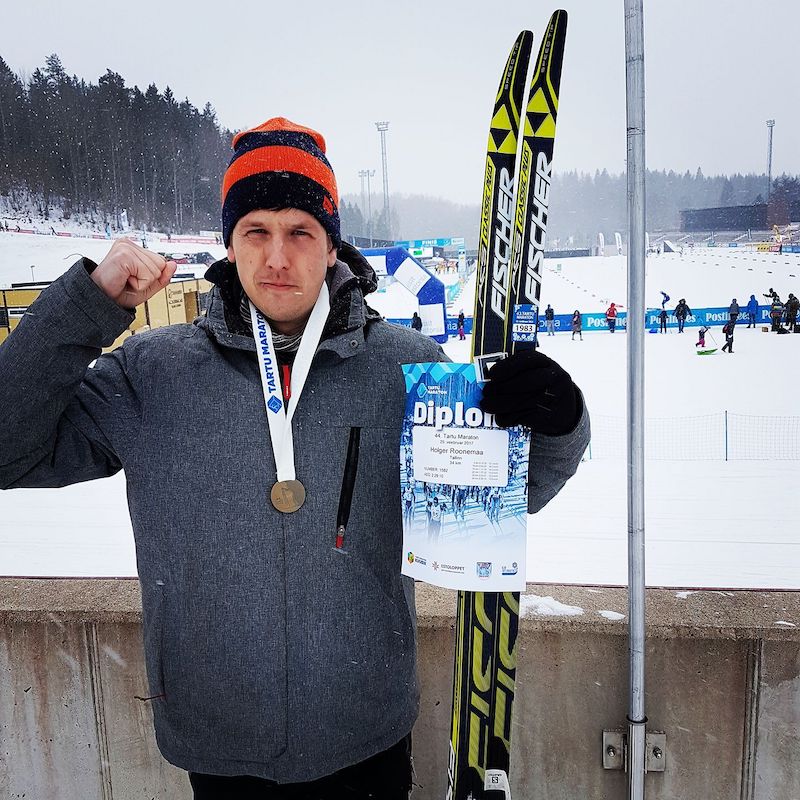
Three things are needed to make an Estonian, according to the old saying. You need to build a house, plant a tree and finish the Tartu cross-country ski marathon.
Most probably, I will never build a house. I have planted a few trees. But for sure I can tick off the marathon box, having multiple times finished the classic 63-kilometre cross-country race, named after the southern Estonian city close to where it takes place.
The excitement starts building every year in late autumn when the days here are sombre, dark and wet. That’s when checking the 10-day weather forecast becomes a bit of an addiction. Is the temperature going to fall below zero? Is there any hint there will be some snow? A few degrees this way or that can make the difference between the ugliest and most depressing time of year and its opposite — a snowy, beautiful winter.
The weather is becoming more unstable. Cold and snowy temperatures change abruptly to a warm and rainy climate, destroying the ski track in a matter of days. This means it becomes more difficult to enjoy winter sports. I take every snowy winter, and every snowy weekend as the last there might be. A few weekends ago, I forced myself to do a 19-kilometre lap, even though I was suffering from a nasty cold. This was because the forecast correctly said that the next weekend there would be no more snow.
I’m a fan of a diminishing sport. The number of people registering themselves at the ski marathon is declining. You can’t be sure if the winter will actually allow you to prepare for the tough effort or if the marathon will even take place.
Cross-country skiing has been part of Estonia’s national identity for decades. It is something that has allowed us to feel “nordic”, which is something the nation also yearns for in terms of quality of life. But soon we’ll need to find a new characteristic to define what makes a “proper Estonian”.
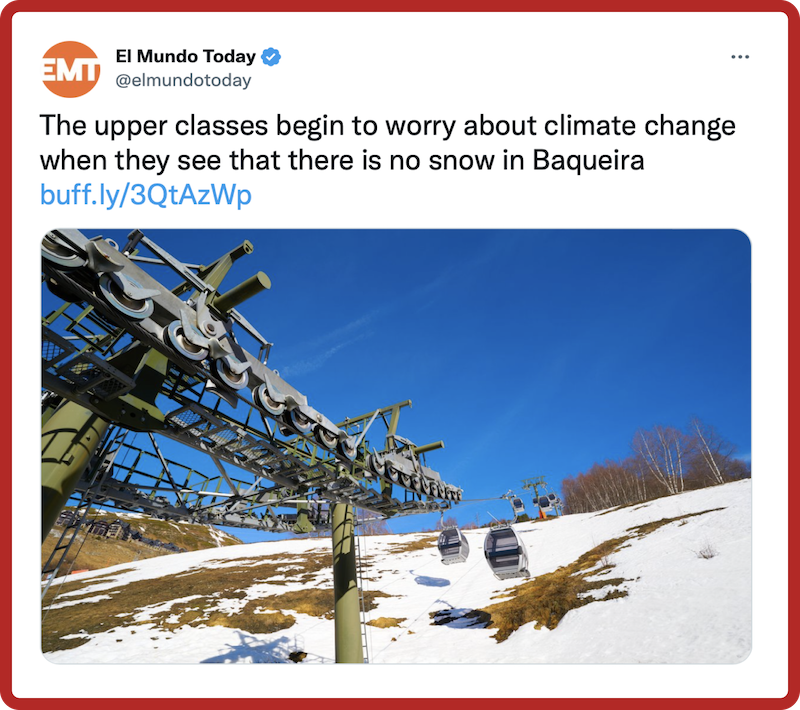
Satire is no different from reality, when it comes to global warming. That was the public reaction after the Spanish version of The Onion published an article with the title: “The upper classes begin to worry about climate change when they see that there is no snow in Baqueira”.
Skiing and other winter sports that need snow are not so popular in Spain, as warm weather is the norm here. Ski resorts such as Baqueira in Catalonia are seen as an expensive holiday destination, and not for all pockets.
But this also shows the stark reality of climate change: for Spain, today’s scarcity of snow will mean tomorrow’s lack of water. The reservoirs in internal basins of Catalonia, for example, are at 31% of their total capacity. According to the Catalan Water Agency (ACA), this figure is “worrying”.
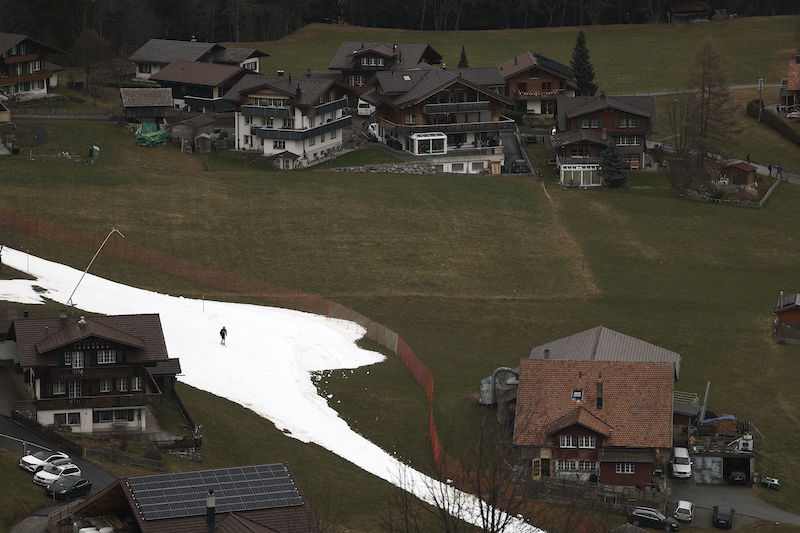
Islands of artificial snow surrounded by green grass – the prevailing image for the recent European heatwave came from the Ski World Cup in Adelboden, Switzerland. The climate crisis means a snow crisis: snow is one of the clearest indicators of climate change.
We are witnessing a business-as-usual adaptation measure to this crisis: artificial snow, shot with cannons, and transported by trucks or helicopters to ski slopes. The point is that we are in a +1.2°C warmer world.
Yet nobody is telling us how mountain communities will adapt to a +2.8°C warmer world where the current global energy policies are driving us. At this point in the history of global warming, artificial snow is costly and disillusional. An average ski slope needs 20k cubic meters of water on average to function.
The only way to save mountain communities and ecosystems is to give up fossil fuels: this is not what is happening. Meanwhile, the UAE has appointed Sultan Al Jaber, CEO of the Abu Dhabi National Oil Company, as president for COP28, the next round of the UN talks on climate change. A leading figure from an oil superpower will lead negotiations to give up oil, coal and gas.
The outcome of COP27 was the triumph of the energy status quo: no new mitigation commitments were agreed, and it’s hard to be hopeful about the next summit, hosted by a petrostate and chaired by a Big Oil CEO.
Don’t be fooled by the next few weeks of frosty weather: we are losing ground to the climate crisis. Artificial snow will buy us some time, but this is a big crisis which needs a big response: quickly reducing carbon emissions. There’s no other way.
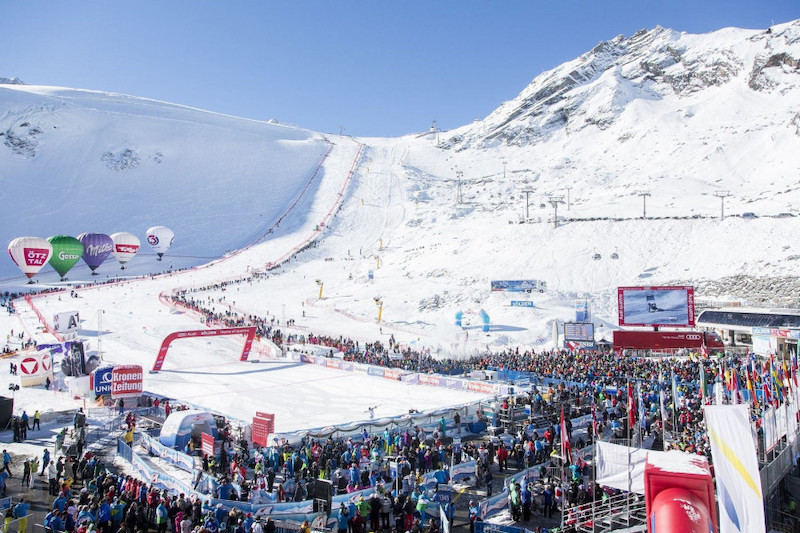
“Was the glacier white? And how was skiing on snow?” This is the question posed by a child from the future, in a tweet by Anne-Sophie Barthet, a member of the French alpine ski team.
This high-level athlete was training on the Tignes glacier, at an altitude of 3,100 meters, when she posted this sad observation on Twitter in 2018, to alert people to the damage by climate change on the mountains.
Five years later, the projected scenario has become a reality. The mild temperatures and lack of snow on French peaks are disrupting the organisation of several competitions and sporting events.
In the Alps, the Tignes station was forced to cancel the “Andros Trophy”, a car race on ice, in January. In the Contamines, along the Swiss border, the telemark World Cup has been postponed until February.
These warm conditions in turn have created a growing movement among professional winter sports athletes. A campaign called “Athletes in Action” has been created to elevate climate change solutions.
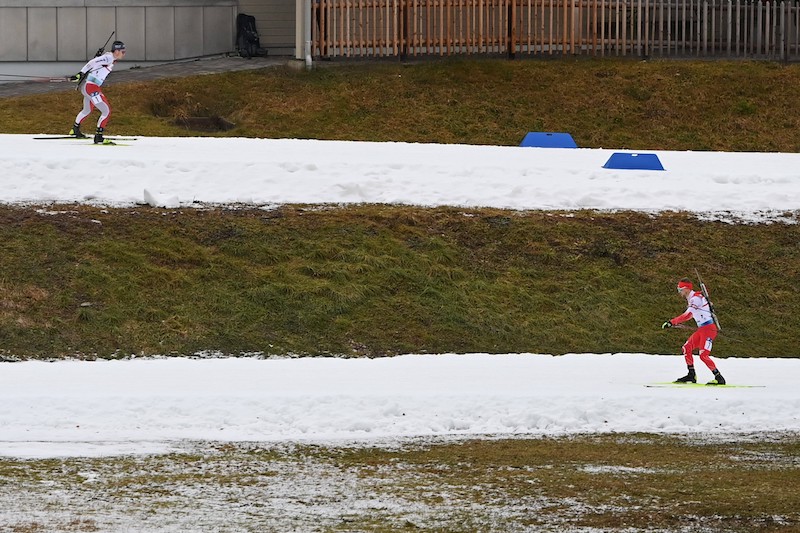
Germany is a winter sports nation, as measured by its 434 Winter Olympic medals and its 14 million citizens who take to the slopes every year. So it should come as no surprise that the country’s penchant for skiing and snowboarding has developed into a multi-billion euro industry.
2.3 percent of Germany’s yearly GDP comes from sport and its associated spending. Winter sports rake in one fifth of that share (about 15 billion euros), while only requiring one fiftieth of the country’s athletic infrastructure expenses.
Such robust profit margins incentivised about 400 southern municipalities to invest heavily in impeccable ski slopes. But winter sports tourism needs one essential ingredient: snow – and less of it is falling every year.
Bavaria hosts eight of Germany’s ten biggest ski resorts. Climate change, however, is not on the region’s side, as the average annual temperature in the Bavarian Alps has increased by 1.5 degrees in the last 60 years.
Piling onto that is the need for more energy-intensive snow cannons. One hectare of artificially powdered ski slopes requires up to three million litres of water (or 20,000 bathtubs), and Germany has no less than 93,000 hectares of track to maintain. Even with the cannons at work, half of Bavaria’s ski resorts are at risk of vanishing within the next 20 years.
Despite existential threats and a swelling ecological footprint, winter sports in Germany remain a lucrative business for now. Lucrative enough to host a recent biathlon in the Bavarian town of Ruhpolding, despite no snowfall or sub-zero temperatures. But as the climate and energy crises rage on, the price to pay for a pure white terrain risks becoming unsurmountable.
Thanks for reading the 15th edition of European Focus,
Environmental activists are throwing paint on sculptures, paintings, and institutions such as the Italian Senate, but there is no more effective message than the melting white strip that snakes along Europe’s mountains.
What’s your perception of this issue? It would be great to have your comment at info@europeanfocus.eu
See you next Wednesday!
Francesca De Benedetti







